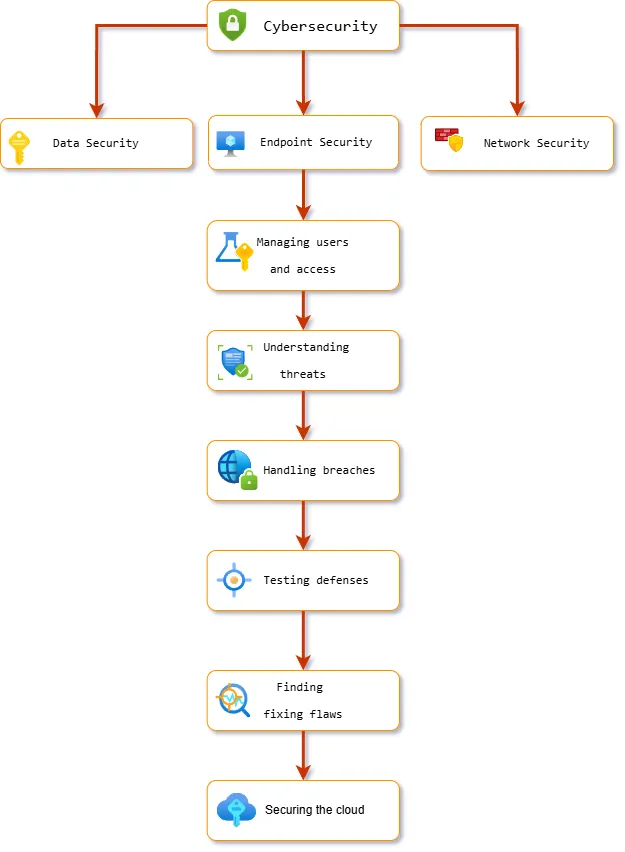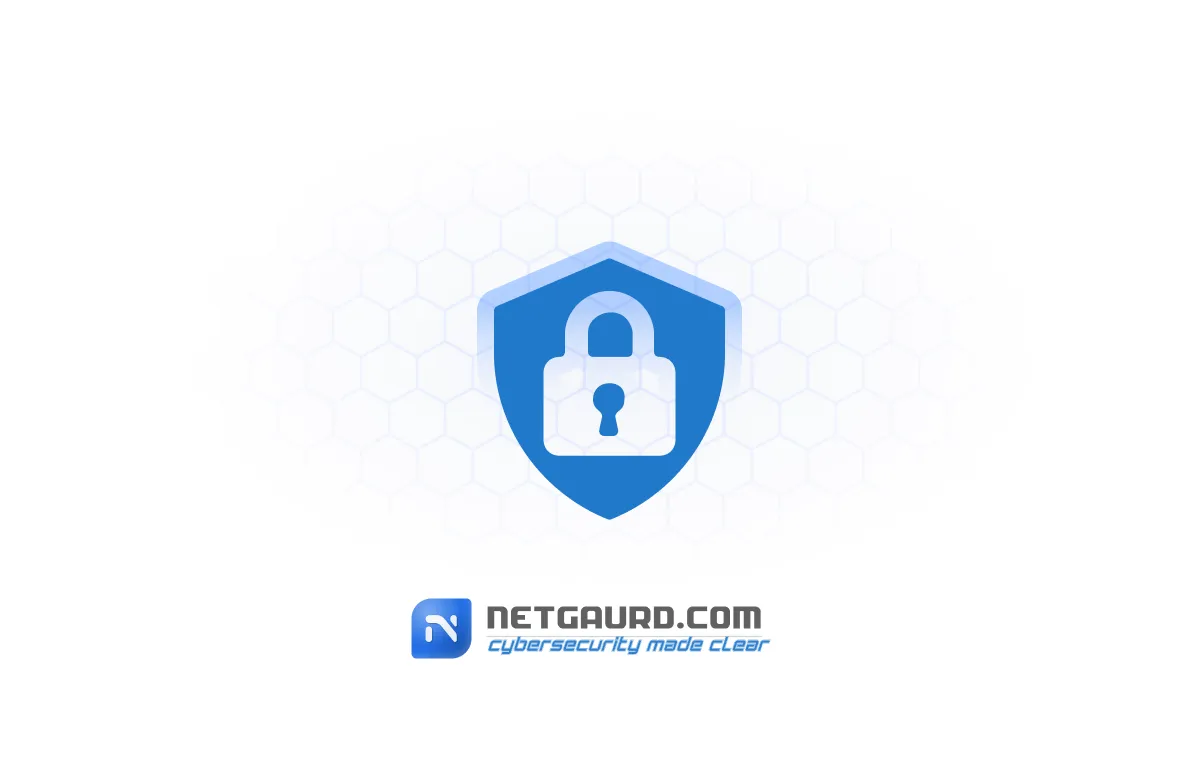Learning how to learn cyber security can be both exciting and challenging. In today’s interconnected world where digital threats are constantly evolving, acquiring cyber security skills has become essential for professionals across industries. Whether you’re a complete beginner or looking to expand your existing IT knowledge, this comprehensive guide will walk you through the most effective approaches to mastering cyber security concepts, tools, and practices. Ready to embark on your journey toward becoming a cyber security professional? Let’s Go!
Table of Contents
- Understanding Cyber Security: The Foundation
- Self-Assessment: Finding Your Starting Point
- Structured Learning: Courses and Certifications
- Hands-On Practice: Building Technical Skills
- Community Engagement: Learning from Others
- Staying Updated: The Continuous Learning Mindset
- Career Pathways in Cyber Security
- Frequently Asked Questions
- Summary
Understanding Cyber Security: The Foundation
Before diving into the technical aspects of how to learn cyber security, it’s crucial to understand what this field encompasses. Cyber security isn’t just about hacking or preventing hackers—it’s a multifaceted discipline focused on protecting systems, networks, and programs from digital attacks.
Core Areas of Cyber Security
The cyber security field consists of several specialized domains, each requiring different skill sets and knowledge bases:
- Network Security: Protecting network infrastructure and connections
- Application Security: Keeping software and applications free of threats
- Information Security: Protecting data integrity and privacy
- Operational Security: Processes and decisions for handling and protecting assets
- Disaster Recovery: How organizations respond to cyber incidents
- End-user Education: Teaching users to be the first line of defense
Understanding these core areas helps you determine which aspects of cyber security align with your interests and career goals. Are you fascinated by finding vulnerabilities in code? Application security might be your calling. Do you enjoy analyzing network traffic patterns? Network security could be your specialty.

Self-Assessment: Finding Your Starting Point
One of the most important steps in learning how to learn cyber security is honestly assessing your current knowledge and skills. This self-evaluation will help you create a personalized learning path that builds on your strengths and addresses your weaknesses.
Technical Background Assessment
Consider your familiarity with these foundational elements:
- Computer Networks: Do you understand how devices communicate?
- Operating Systems: Are you comfortable with Windows, Linux, or macOS?
- Programming: Do you have experience with any programming languages?
- IT Infrastructure: Are you familiar with servers, databases, or cloud services?
If you’re starting with minimal technical background, don’t worry! Everyone begins somewhere. You’ll simply need to incorporate some foundational IT concepts into your learning journey before tackling advanced security topics.
Learning Style Identification
People learn differently, and identifying your preferred learning style can dramatically increase your efficiency:
- Visual Learners: Benefit from diagrams, flowcharts, and videos
- Auditory Learners: Excel with podcasts, discussions, and verbal explanations
- Hands-on Learners: Thrive by doing practical exercises and labs
- Reading/Writing Learners: Prefer textbooks, articles, and taking notes
Most successful cyber security professionals use a combination of these learning approaches, with particular emphasis on hands-on practice. The field is inherently practical, requiring actual experience with tools and techniques rather than just theoretical knowledge.
Structured Learning: Courses and Certifications
Now that you understand what cyber security encompasses and where you’re starting from, it’s time to explore formal education options. Structured learning provides a systematic approach to mastering cyber security fundamentals.
Online Courses for Beginners
If you’re wondering how to learn cyber security without breaking the bank, online courses offer an accessible entry point:
- Free Resources: Platforms like Cybrary, Khan Academy, and YouTube channels such as “NetworkChuck” or “The Cyber Mentor”
- Paid Courses: Structured programs on Udemy, Coursera, or LinkedIn Learning
- Interactive Platforms: TryHackMe and HackTheBox for gamified learning experiences
For absolute beginners, I recommend starting with courses like “Introduction to Cyber Security” on edX or Coursera, which provide broad overviews before diving into specialized topics.
Industry-Recognized Certifications
Certifications serve as valuable credentials that validate your knowledge and skills to potential employers:
Entry-Level Certifications
- CompTIA Security+: A vendor-neutral certification covering security fundamentals
- Certified Ethical Hacker (CEH): Focused on ethical hacking methodologies
- GIAC Security Essentials (GSEC): Proves hands-on security skills
Intermediate Certifications
- Certified Information Systems Security Professional (CISSP): A comprehensive certification (requires 5 years of experience)
- Certified Information Security Manager (CISM): Focuses on security management
Don’t feel pressured to collect certifications like trophies. Instead, choose ones that align with your career goals. Many employers value practical skills and experience over a long list of credentials.
Degree Programs vs. Self-Study
Formal education through a degree program offers structured, comprehensive learning but requires significant time and financial investment. Bachelor’s and master’s degrees in cyber security, computer science, or information technology provide depth and breadth that self-study might miss.
However, self-study combined with certifications and practical experience can be equally effective for many roles in the industry. The best approach often combines elements of both: formal education for foundational concepts and self-directed learning for specialized skills and emerging technologies.
Hands-On Practice: Building Technical Skills
When learning how to learn cyber security, theoretical knowledge alone won’t suffice. The field demands practical experience. Here’s how to gain hands-on skills that employers value:
Setting Up a Home Lab
Creating a personal testing environment allows you to experiment safely without risking actual systems:
- Virtualization Software: VirtualBox or VMware to run multiple operating systems
- Security-Focused Distros: Kali Linux, Parrot Security OS, or Security Onion
- Vulnerable Machines: Purposefully vulnerable systems like DVWA (Damn Vulnerable Web Application) or Metasploitable
Start simple—even a single laptop running virtualization software can host multiple virtual machines for practice. As your skills grow, you can expand your lab with additional hardware.
[Image Suggestion: A workspace showing a computer setup with multiple screens displaying a home lab environment with virtual machines running | Alt text: Home cyber security lab setup with virtualization environment for hands-on practice]
Capture The Flag (CTF) Competitions
CTFs are competitive events where participants solve security challenges to find hidden “flags”:
- Jeopardy-style CTFs: Categories include cryptography, web exploitation, forensics, etc.
- Attack-Defense CTFs: Teams attack others’ systems while defending their own
- Platforms: CTFtime.org lists upcoming events, while sites like PicoCTF offer beginner-friendly challenges available anytime
These competitions develop problem-solving skills, technical knowledge, and the ability to work under pressure—all valuable in real-world security situations. Even if you’re a beginner, participating in CTFs provides invaluable learning experiences.
Open-Source Projects and Bug Bounties
Contributing to real-world security efforts builds both skills and reputation:
- Open-Source Security Tools: Projects on GitHub welcome contributions from developers at all levels
- Bug Bounty Programs: Platforms like HackerOne and Bugcrowd connect security researchers with companies offering rewards for finding vulnerabilities
Start with small contributions—even documentation improvements help open-source projects. For bug bounties, begin with less competitive programs that welcome beginners, focusing on finding and reporting issues rather than expecting immediate monetary rewards.
Remember, practical experience is what truly develops your cyber security intuition. Make hands-on practice a daily habit, even if it’s just 30 minutes of lab work or solving a simple CTF challenge.
Community Engagement: Learning from Others
Learning how to learn cyber security is significantly enhanced through community involvement. The field evolves rapidly, and connecting with other professionals provides insights, support, and opportunities you might otherwise miss.
Online Forums and Social Media
Digital communities offer accessible networking opportunities:
- Reddit Communities: r/netsec, r/cybersecurity, r/asknetsec
- Discord Servers: Security focused communities like The Many Hats Club or TryHackMe
- Twitter/LinkedIn: Following security researchers and organizations for latest news and discussions
- Stack Exchange: Information Security Stack Exchange for Q&A
Don’t just lurk—active participation accelerates learning. Ask questions, answer when you can, and share resources you’ve found helpful.
Meetups and Conferences
In-person or virtual events provide deeper connections and learning opportunities:
- Local Meetups: Check Meetup.com for security groups in your area
- Major Conferences: DEF CON, Black Hat, RSA Conference (many offer student discounts)
- Virtual Events: Webinars and online conferences are often free or low-cost
These events expose you to cutting-edge research, tools, and techniques. They’re also excellent for meeting potential mentors or employers. Even if you’re shy, make an effort to introduce yourself to at least one new person at each event.
Mentorship Opportunities
Learning from experienced professionals can dramatically accelerate your progress:
- Formal Mentorship Programs: Organizations like SANS, ISC2, and the Cyber Security Challenge offer structured mentoring
- Informal Mentoring: Connections made through networking events or online communities
- Reciprocal Learning: Even as a beginner, you can offer value through fresh perspectives or skills from other fields
When seeking a mentor, be specific about what you hope to learn and respectful of their time. Prepare questions in advance and follow through on their suggestions. The right mentorship relationship can provide invaluable guidance through the complex cyber security landscape.
Remember that understanding basic cyber security requirements forms the foundation upon which you’ll build more advanced knowledge. Community resources can help reinforce these fundamentals while introducing you to specialized applications.
Staying Updated: The Continuous Learning Mindset
Perhaps the most critical aspect of learning how to learn cyber security is developing a commitment to continuous education. The field evolves at breakneck speed, with new threats, technologies, and defenses emerging constantly.
Following Security News
Staying informed about current events in the security landscape is essential:
- Security Blogs: Krebs on Security, Schneier on Security, The Hacker News
- Podcasts: Darknet Diaries, Security Now, SANS Internet Storm Center
- Newsletters: Curated content like SANS NewsBites or ThreatPost
Set aside time each week to catch up on industry news. Understanding recent breaches, vulnerabilities, and attack techniques helps you apply theoretical knowledge to real-world scenarios.
Developing Research Skills
Security professionals must be adept researchers:
- Technical Documentation: Get comfortable reading RFCs, technical specifications, and official documentation
- Academic Papers: Many cutting-edge security techniques appear in research before becoming mainstream
- Source Code Analysis: Learning to read and understand code, even if you’re not a developer
Practice researching new concepts you encounter. Don’t just accept surface-level explanations—dig deeper to understand underlying mechanisms and implications. This habit serves well throughout a security career.
Creating Personal Projects
Self-directed projects cement learning and demonstrate skills to employers:
- Security Tools: Developing simple utilities or scripts that solve specific problems
- Documentation: Creating guides or tutorials for techniques you’ve mastered
- Research: Analyzing specific threats or vulnerabilities and publishing your findings
These projects needn’t be groundbreaking innovations—they’re primarily for your learning benefit. However, sharing them publicly (such as on GitHub or a personal blog) builds your professional profile and contributes to the community.
Career Pathways in Cyber Security
Understanding potential career paths helps focus your learning efforts. Cyber security offers diverse roles requiring different skill sets:
Common Entry Points
These roles often serve as gateways to cyber security careers:
- Security Analyst: Monitoring systems for security issues and responding to incidents
- Network Administrator: Managing network infrastructure with security responsibilities
- IT Support: Handling technical issues including security-related concerns
- Security Auditor: Evaluating compliance with security policies and regulations
Specialized Pathways
As you gain experience, you might focus on specialized areas:
- Penetration Tester: Simulating attacks to find vulnerabilities
- Malware Analyst: Studying malicious software to understand its behavior
- Digital Forensics: Investigating security incidents and collecting evidence
- Security Architect: Designing secure systems and infrastructure
- Security Engineer: Implementing security solutions and tools
Leadership Roles
With experience and broader business knowledge, you might advance to:
- Security Manager: Leading security teams and programs
- Chief Information Security Officer (CISO): Executive responsible for an organization’s security strategy
- Security Consultant: Advising organizations on security matters
Research these roles to understand their requirements and responsibilities. This knowledge helps you target your learning toward the skills most relevant to your desired career path.
Remember that many successful security professionals didn’t start in security—they transitioned from IT, development, or even unrelated fields. Your unique background may provide valuable perspectives in security contexts.
FAQ
How long does it take to learn cyber security?
The timeline varies greatly depending on your background, dedication, and learning path. With a technical IT background, you might transition into entry-level security roles within 6-12 months of focused study. Without technical experience, expect 1-2 years of foundational learning plus security-specific training. Becoming truly proficient takes years of continuous learning and practical experience. Set realistic expectations—this is a marathon, not a sprint.
Do I need to know programming to work in cyber security?
While not all security roles require advanced programming skills, basic scripting knowledge is increasingly important. Understanding how code works helps you identify vulnerabilities and automate tasks. Start with Python, which is widely used for security tools and scripts. Even rudimentary programming knowledge gives you an advantage, particularly in technical security roles like penetration testing or security engineering.
Is cyber security math-intensive?
Most security roles don’t require advanced mathematics daily. However, cryptography involves mathematical concepts, and security analysis often uses statistical thinking. Basic algebra, logic, and probability are sufficient for many positions. Don’t let concerns about math discourage you—practical security work emphasizes logical thinking and problem-solving more than mathematical calculations.
Can I learn cyber security on my own, or do I need a degree?
Self-study is absolutely viable in cyber security. Many successful professionals are self-taught or have learned through certifications rather than formal degrees. A degree provides structured learning and can help with certain job requirements, but practical skills and experience often matter more. The field values demonstrated abilities over credentials alone. Combine self-study with hands-on practice, certifications, and community involvement for a well-rounded education.
What’s the most difficult aspect of learning cyber security?
Many newcomers find the breadth of knowledge required most challenging. Cyber security touches on networking, programming, operating systems, hardware, and human factors—it’s impossible to master everything. The constant evolution of threats and technologies also means perpetual learning. Develop comfort with uncertainty and focus on building a solid foundation while accepting that you’ll always be learning something new.
Summary
Learning how to learn cyber security is a journey that combines structured education, hands-on practice, community engagement, and continuous self-improvement. To succeed in this field:
- Start with a clear understanding of cyber security domains and your current skills
- Build knowledge through courses, certifications, and formal education as appropriate
- Develop practical skills through labs, CTFs, and real-world projects
- Engage with the security community for support and updated knowledge
- Commit to continuous learning to keep pace with evolving threats
- Focus your efforts based on specific career goals
Remember that everyone’s learning path will look different based on their background, resources, and objectives. There’s no single “correct” way to learn cyber security—the key is consistent effort and practical application of knowledge.
The cyber security field offers rewarding careers for those willing to invest in ongoing education and skill development. By following the approaches outlined in this guide, you’re well on your way to building the knowledge and capabilities needed in this dynamic profession.
Have you started your cyber security learning journey? What resources or approaches have you found most valuable? Share your experiences in the comments below—your insights might help others on similar paths. And if you’re looking for more security guidance, explore our other articles on fundamental security practices and specialized techniques.

